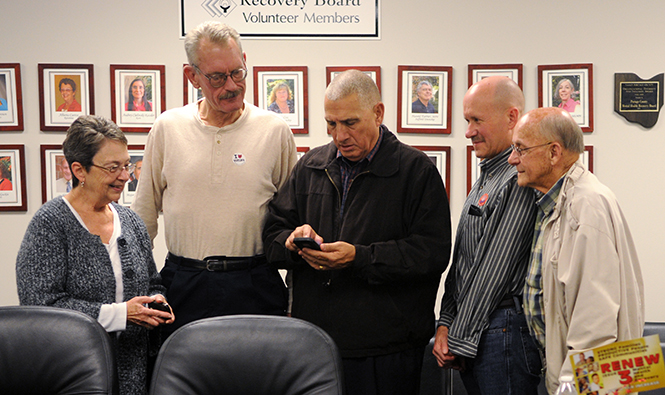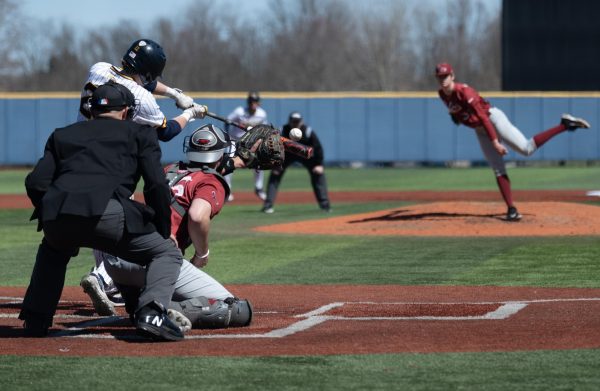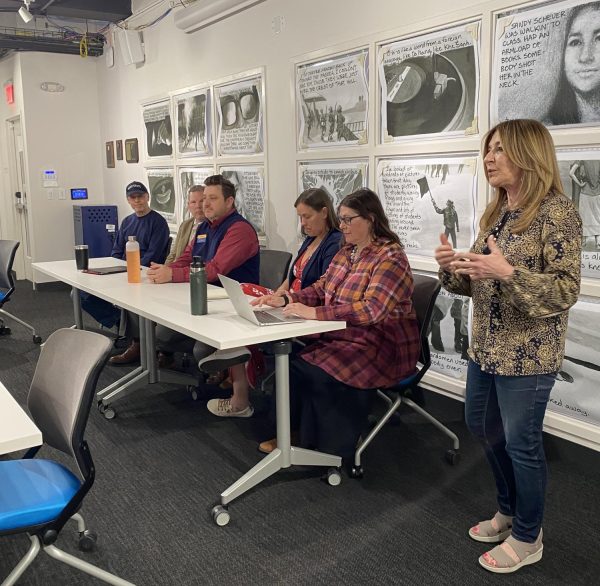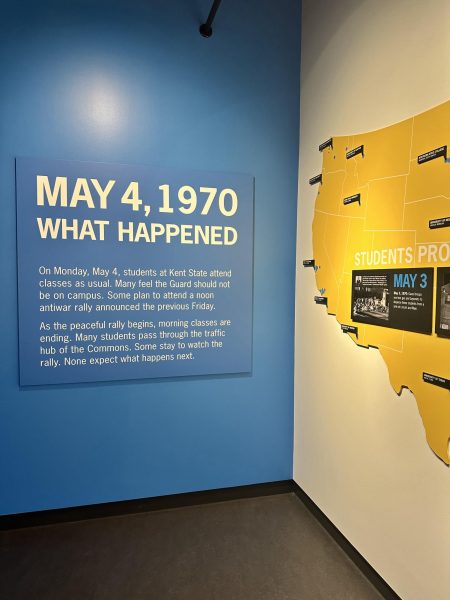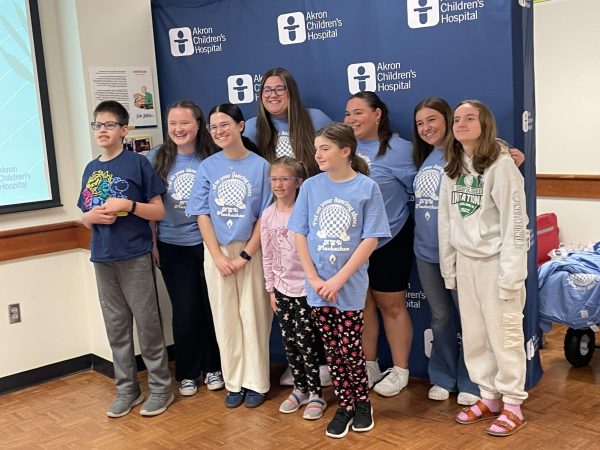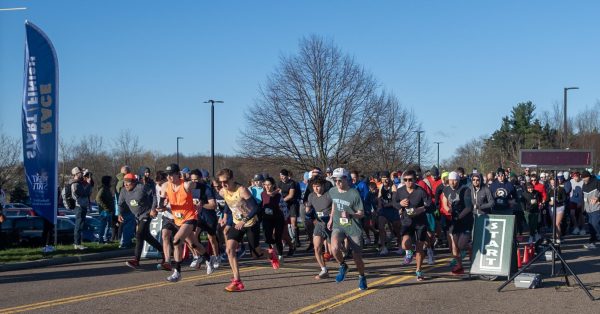Mental health levy passes, will provide significant funding for local services
Alberta Caetta, Bill Nome, Dennis Missimi, Joel Mowrey, Gene Mills gather around to view the updated results on Issue 3 at the Mental Health & Recovery Board of Portage County on Tuesday, Nov. 5, 2013. Photo by Rachael Le Goubin
November 6, 2013
Issue 3, a levy for the Mental Health and Recovery Board of Portage County passed Tuesday night 67 percent to 33 percent.
“I’m very happy for the support of the voters for our services,” said Joel Mowrey, executive director of the Mental Health and Recovery Board of Portage County. “The size of the support is really great to see. I’m very pleased.”
The 1-mill(one-thousandth of a US dollar), 10-year levy renewal will raise about $3.1 million for the board each year, said Amie Cajka, the director of community relations for the Mental Health and Recovery Board of Portage County. That amount constitutes about half of the money the board takes in each year.
The funds will provide services to adults, teens and children, in Portage County. Services include 1-on-1 counseling, group counseling, intensive treatment for addictions and comprehensive care for those with severe mental illness.
Campaign manager Andrew Kluge said he wanted to thank all the voters and volunteers.
“We had people sacrifice their weekends to make sure we get the vote out for Issue 3,” Kluge said.
Cajka said the levy was critical. Since 2008, the state has cut back on funding for mental health, alcohol and drug services. The MHR has been using reserve funds, but Cajka said it would not be able to continue to do so.
Cajka said the most important thing the board did during its campaign was get the word out about the election.
“We really tried to work on getting out the vote to our supporters because we knew it was going to be a low turnout kind of election and not very exciting in some parts of the county,” Cajka said.
The levy was first passed in 1983, and the property tax incurred by the levy has not risen since then, according to its website, mhrlevy.org.
A homeowner, whose home is valued at $100,000, will pay around $2.50 per month in property taxes for the levy.
Last year, the board helped serve 7,200 residents who needed assistance with mental health or addiction problems.
The levy money will support local agencies such as Coleman Professional Services, Children’s Advantage, Town hall 2 and Family and Community Services.
Contact Audrey Fletcher at [email protected].


